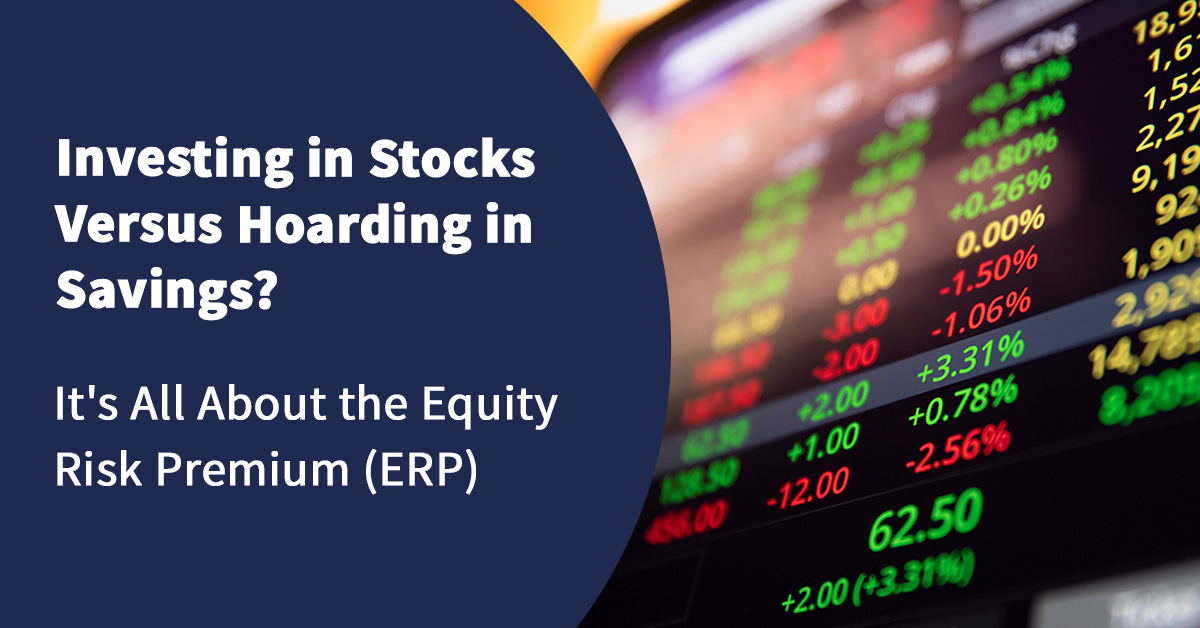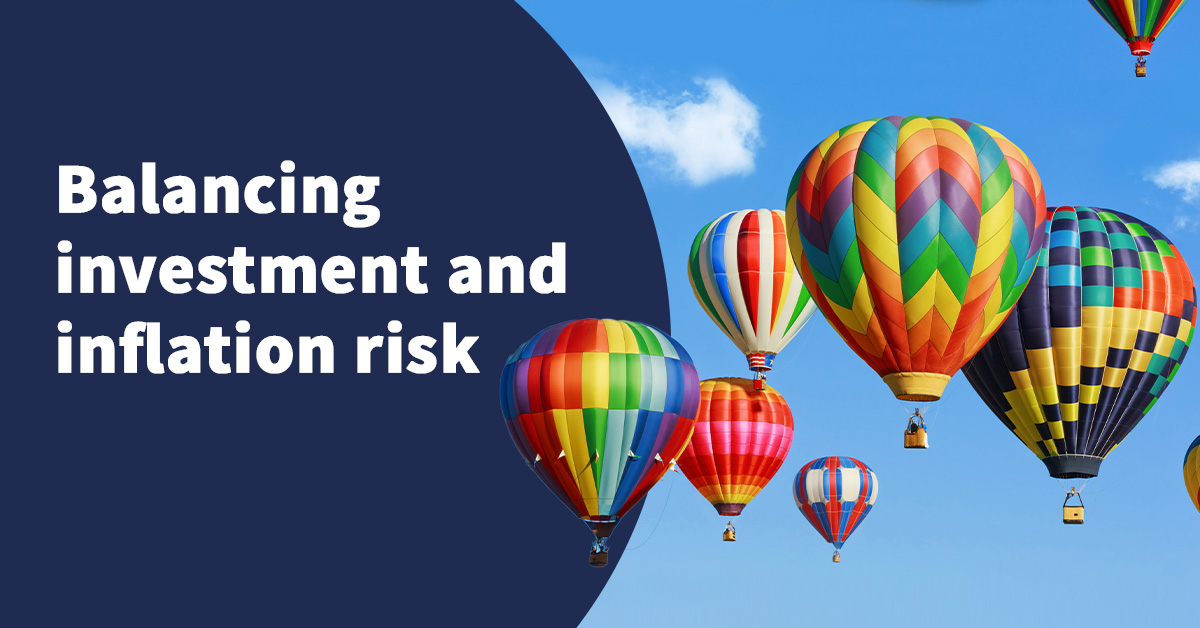Prices are up, and markets are down:
When we look back over the past 50 years, we can make a long list of all the things that made markets go down. But we have to accept that these shocks will happen and they cannot be predicted.
This time there is inflation, fear of a recession, a war in Ukraine, and increased volatility. We don’t know when this will end. We also won’t know exactly what will cause the next shock or when it will occur.
The only thing one can guarantee is that it’s going to be a surprise (because if it weren’t, the market would have priced that in).
The current slew of negative political and economic news understandably impacts the risk appetite of investors. However, staying the course while adapting to the context is important
There are three reasons why:
- Time in the market, not timing the market, delivers returns.
- Compounded long-term returns tend to outweigh the losses prompted by episodic crises.
- In the context of high inflation, cash is riskier than equities for capital preservation.
Trying to time the market to buy before ‘good’ days and sell before ‘bad’ ones is impossible. Staying invested is critical to capture all the good days that drive returns, but inevitably that means accepting some bad ones too.

There’s no proven way to time the market. Targeting the best days, moving to the side-lines to avoid the worst, or waiting for the market to ‘pick up before you invest. Missing only a brief period of strong returns can drastically impact overall performance.
In times like this, when stock prices have come down, the market is setting prices so shares will have a better return and attract buyers. When you see a drop, prices are lower so that, going forward, the people who buy have a greater chance of having a positive outcome.
It is also important to consider ‘risk’ in a broad sense: not just investment risk, but inflation risk too, In an inflationary environment it is important that investors are not completely paralysed by risk aversion.
Lower risk assets such as cash may appear safe and not fluctuate, but in an inflationary regime cash is high-risk over the medium to long term as its purchasing power is destroyed by inflation. The volatility of cash is not, in fact, zero, but is impacted by the volatility of inflation. And when inflation volatility is high, the riskiness of cash is high. So in inflationary territory keeping money as cash is not king.
As a long-term investor, the good news is: You can try to mitigate inflation risk
Performance since the 1970s illustrates the equity market’s value as a long-term protector of returns.
It is always a good idea to talk to an expert before making any financial decisions.
Find out how we can help you
If you would like to understand more about this topic get in touch
Related posts
 Published On: August 22, 2024|1.4 min read|
Published On: August 22, 2024|1.4 min read|Investing in Stocks Versus Hoarding in Savings? It’s All About the Equity Risk Premium (ERP)
Have you ever wondered why investing in the stock market can yield higher returns than just keeping your money in a savings account or fixed-term deposit? The answer lies in the Equity Risk Premium (ERP).
Read more
 Published On: August 18, 2024|1.2 min read|
Published On: August 18, 2024|1.2 min read|Inflation Made Real with Beers and Burgers
From 1990 to 2023, the price of a pint of beer in the UK has risen from £1.22 to £4.45, and a Big Mac from £1.40 to £3.69. A clear illustration of how inflation eats into our finances.
Read more
 Published On: August 12, 2024|0.9 min read|
Published On: August 12, 2024|0.9 min read|The “Wall of Worry” Timeline
This "Wall of Worry" timeline highlights major global crises from the past three decades. As investors, we often find ourselves concerned about the constant barrage of negative world events.
Read more









